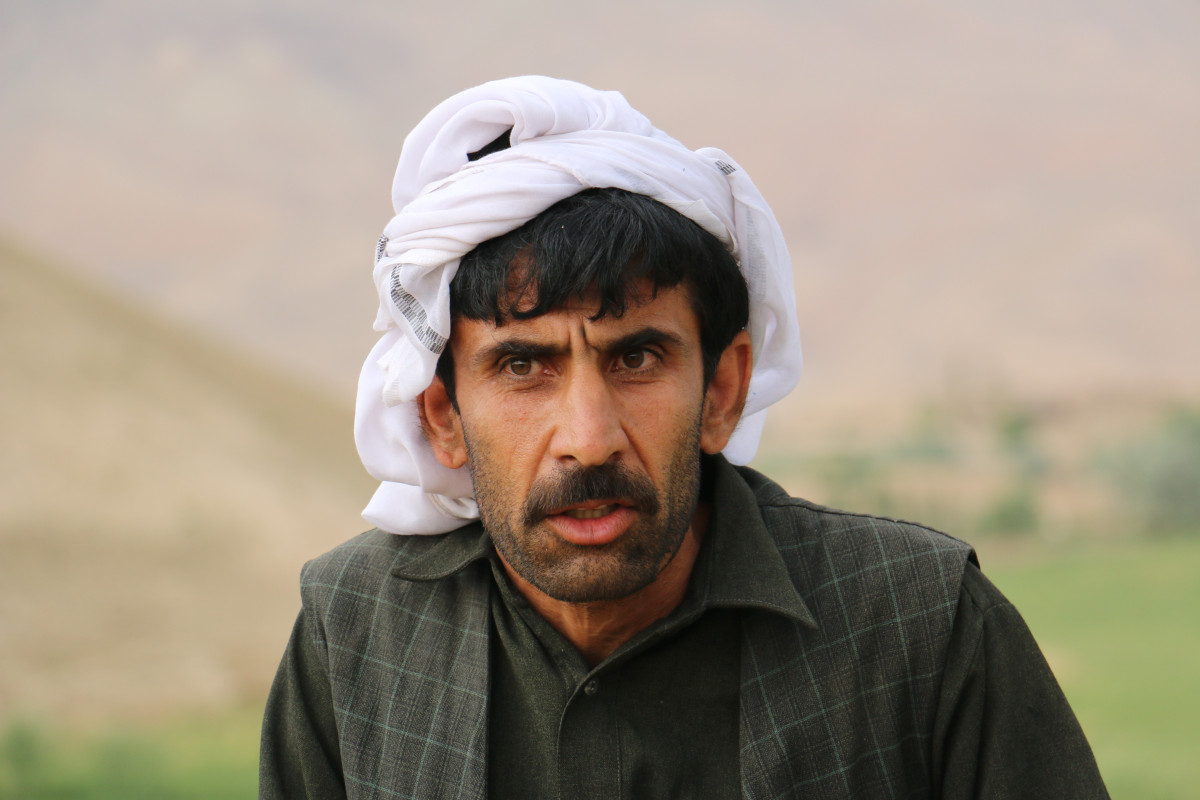I am helping 30 farmers how to plant trees and grow vegetables, says Khan Bukhari on his demonstration garden
Published: Oct 26, 2016 Reading time: 2 minutes Share: Share an articleKhan Bukhari (30) was a refugee in Pakistan for most of his life. His family returned to Afghanistan and he now lives with 20 other people in his house in Sanger Khal, a small village of Samangan province in northern Afghanistan. When People in Need (PIN) started a Natural Resource Management project funded by the Czech Development Agency, community leaders recommended his garden as a demonstration field. “This contribution is bringing dramatic changes to my life, because I can grow vegetables such as tomatoes, okra and squashes,” says Khan Bukhari.

Khan Bukhari’s life is far from easy. His family lived in Pakistan as refugees for over 30 years, with limited livelihood and education opportunities. Khan Bukhari grew up in Pakistan, so returning to Afghanistan felt like becoming a refugee again. Now he is married and struggles to feed his family. He lives on hilly, arid land that has suffered from erosion, making it difficult to grow food. One year ago, People in Need introduced the Farmer-Led Extension Project to the Community Development Council in his village: the project focuses on the management of natural resources vital for agricultural production.
One of the project’s activities was to establish demonstration vegetable gardens within the communities it targeted. These gardens help to teach other local farmers about new cultivation techniques. “I was very interested to have a demonstration garden. This is why I let my Community Development Council know about the site I consider for it. They came to evaluate the site and accepted it,” Khan Bukhari said, explaining how he joined the project.
We will cultivate this eroded hill
Once accepted into the program, People in Need’s contribution arrived. “Khan Bukhari received plastic sheeting for storing water, spades for ploughing the garden and making rows or wheelbarrow for carrying material,” says Saber Amini, PIN field officer.
At the same time another People in Need activity was in place. Thirty farmers from his village established a group called Gape Mohimi Dega (One More Important Point), and Khan Bukhari was appointed as its team leader. He received trainings and now trains and helps other group members to plant trees and grow vegetables. “Other members often visit his garden to learn how to grow new crops and new cultivation techniques,” says Saber Amini. Khan Bukhari plans to cultivate vegetables and trees for more than ten years. The earnings will help feed his family and buy new seeds to keep the garden going.
Khan Bukhari looks at the dry hills destroyed by erosion behind his house and plans further. “The hill was destroyed one hundred years ago, but with People in Need’s support we will be able to cultivate this land and plant more trees and vegetables there,” he says.
Read more about our projects in Afghanistan!
* Names of people have been changed in the article for security reasons



